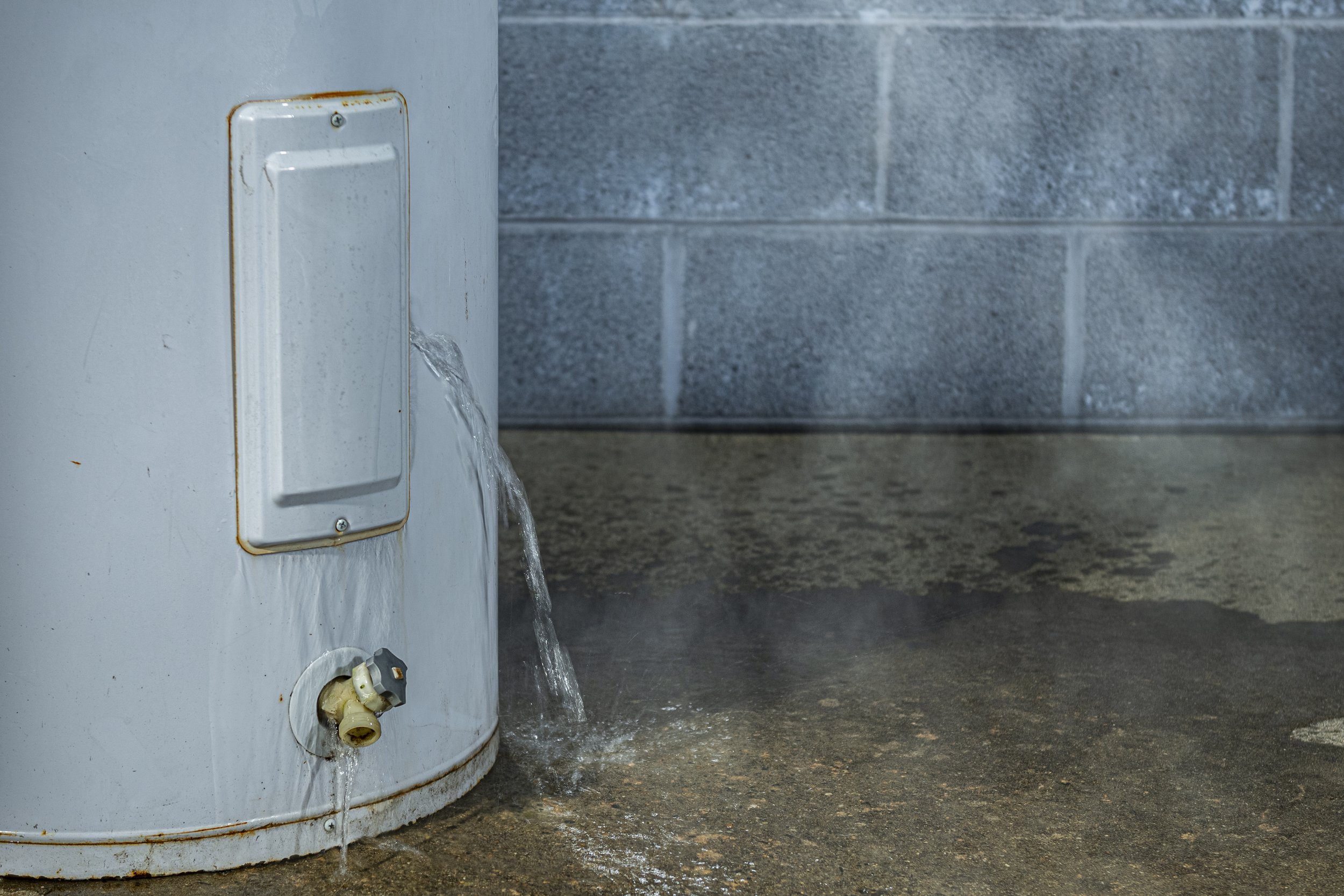What Does It Mean if Your Water Heater is Leaking?
Discovering a leak in your water heater can be alarming. It’s an issue that demands immediate attention to prevent potential water damage and loss of hot water. But what does it mean if your water heater is leaking? In this blog post, we’ll explore the common causes, potential risks, and steps you should take to address this issue.
Understanding the Leak: Common Causes
Age and Wear and Tear: Water heaters are not immortal. Over time, the components can wear out, leading to leaks. If your water heater is more than 10-15 years old, the chances of leaks increase significantly.
Loose Connections: Sometimes, the connections to and from the water heater can become loose. This is often a simple fix but can lead to significant water loss if not addressed.
Excessive Pressure: Water heaters are designed to withstand a certain amount of pressure. However, if the pressure builds up beyond what the unit can handle, it can cause leaks. This can be due to a malfunctioning pressure relief valve or high water pressure in your home's plumbing system.
Sediment Build-up: Over time, sediment can accumulate at the bottom of the tank. This can cause the tank to overheat, leading to leaks as the metal weakens and corrodes.
Corrosion: If you notice rust-colored water, this might be a sign of corrosion inside the tank. Corroded tanks often develop leaks as the metal breaks down.
Potential Risks of a Leaking Water Heater
Water Damage: A leaking water heater can cause significant damage to your home. Water can seep into floors, walls, and foundations, leading to mold growth and structural issues.
Loss of Hot Water: Depending on the severity of the leak, you might find yourself without hot water, which can be a major inconvenience.
Higher Energy Bills: Leaks can cause your water heater to work harder than necessary, increasing your energy consumption and, consequently, your utility bills.
Safety Hazards: Leaking water around electrical components can pose serious safety risks, including the potential for electrical fires or short circuits.
What to Do If Your Water Heater is Leaking
1. Turn Off the Power
For electric water heaters, turn off the power at the circuit breaker. For gas water heaters, set the gas control valve to the "off" position.
2. Shut Off the Water Supply
Locate the cold water shut-off valve, which is usually found near the top of the water heater. Turn it off to stop the flow of water into the tank.
3. Drain the Tank
Attach a garden hose to the drain valve at the bottom of the tank and direct the other end to a safe location (e.g., a floor drain or outside). Open the drain valve to let the water out of the tank. This will help prevent further leakage and make it easier to inspect the heater.
4. Inspect the Heater
Check the water heater and the surrounding area to identify where the leak is coming from. Common areas include the pressure relief valve, drain valve, and tank itself.
5. Call a Professional
While some minor issues like loose connections can be fixed with a DIY approach, most leaks, especially those involving the tank, require the expertise of a professional plumber or technician. They can assess the damage and recommend whether a repair or a replacement is necessary.
Preventative Measures
Regular Maintenance: Schedule annual inspections and maintenance for your water heater. This can help catch potential issues before they turn into leaks.
Pressure Regulation: Install a pressure regulator if your home has high water pressure to prevent excessive strain on your water heater.
Flush the Tank: Regularly flushing the tank can help remove sediment build-up, extending the life of your water heater and preventing leaks.
Check for Corrosion: Inspect your water heater periodically for signs of corrosion. If you notice rust or any deterioration, it might be time for a replacement.
Conclusion
A leaking water heater is more than just a nuisance; it’s a sign that something needs attention. Whether it’s due to age, loose connections, or sediment build-up, addressing the issue promptly can save you from costly repairs and potential damage. Always prioritize safety by turning off the power and water supply, and don’t hesitate to call in a professional to ensure your water heater is functioning correctly and efficiently. Regular maintenance and inspections can go a long way in preventing leaks and extending the life of your water heater.

